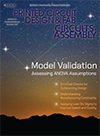To help those trying to meet IPC guidelines for surface finishes in a demanding production environment, Hitachi High-Tech has produced a white paper that helps to clarify the IPC requirements.
Written to cover the four most common surface finishes in printed board manufacture today, the white paper focuses on the most important parameter of surface finish – thickness. As manufacturers of XRF equipment – the industry standard for plating thickness measurements – Hitachi has given inside expertise and insight into how to make sure measurements are meeting IPC guidelines.
What are the IPC specifications? The IPC has written an extensive library of specifications that cover every aspect of printed board manufacture. This includes the optimal thickness for many surface finishes. The actual specifications are a result of extensive testing by the IPC manufacturers of printed circuit board components. The individual specifications are constantly under review, and as industry practices change, the specifications are updated accordingly.
The IPC specifications are guidelines, so they are not mandatory. However, they are seen as the industry standard, and the best way to produce a high quality component with a long shelf-life.
The surface finishes for printed boards are very small, and in some cases several metallic layers are deposited. In practice this means that tiny variations in thickness can have a huge impact on the performance on the part in the field. Tight control of the deposit thickness is essential for a reliable and reproducible component. XRF is the industry standard for thickness measurement. However, the XRF equipment requires careful setup and calibration to ensure accuracy.
Your guide for tight process control. Hitachi High-Tech’s new guide covers the four main surface finishes used in printed board manufacture today:
- IPC-4552A ENIG
- IPC-4553A Immersion Silver
- IPC-4554 Immersion Tin
- IPC-4556 ENEPIG
Each finish type is broken down to be easily digested in the guide, including what happens to the component if the surface thickness isn’t right. Core to the guide is how to ensure your XRF measurements are accurate, especially when measuring tricky elements, such as gold, where it can be easy to misinterpret results.
The guide also tells you how to setup your XRF equipment, and what you need to look out for when measuring each type of finish.
The "Manufacturers’ Guide for meeting IPC Specifications for Printed Board Surface Finishes" is free and available here













